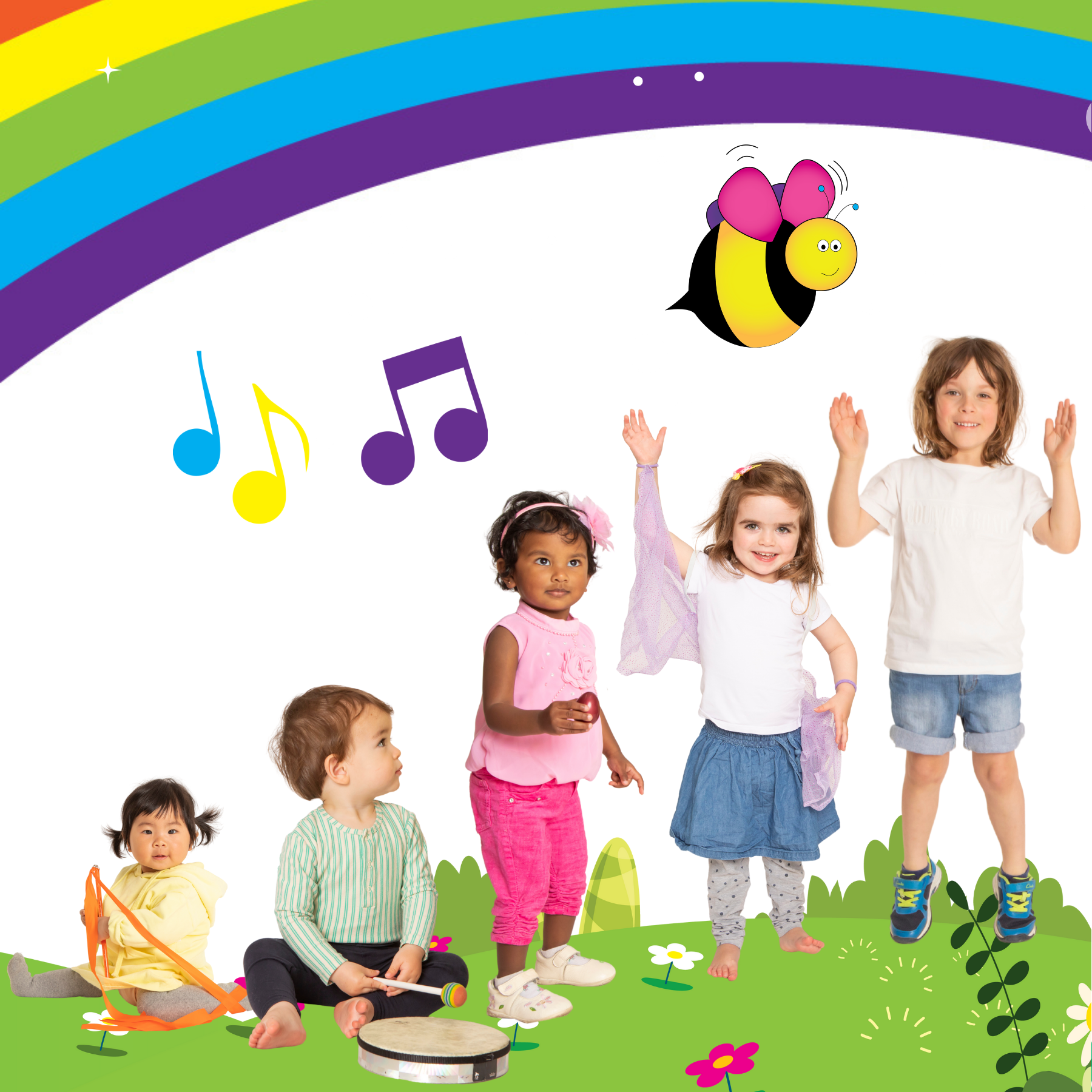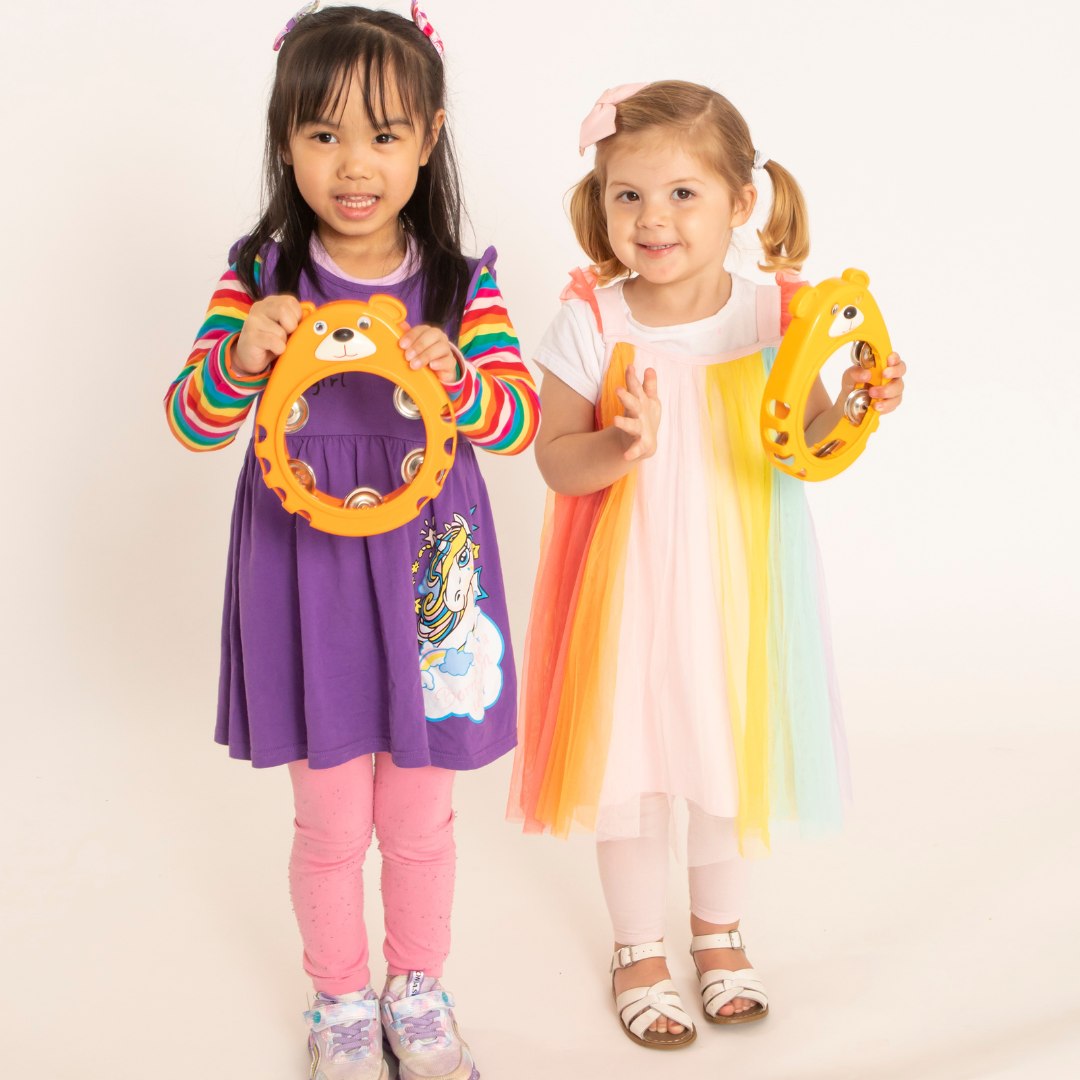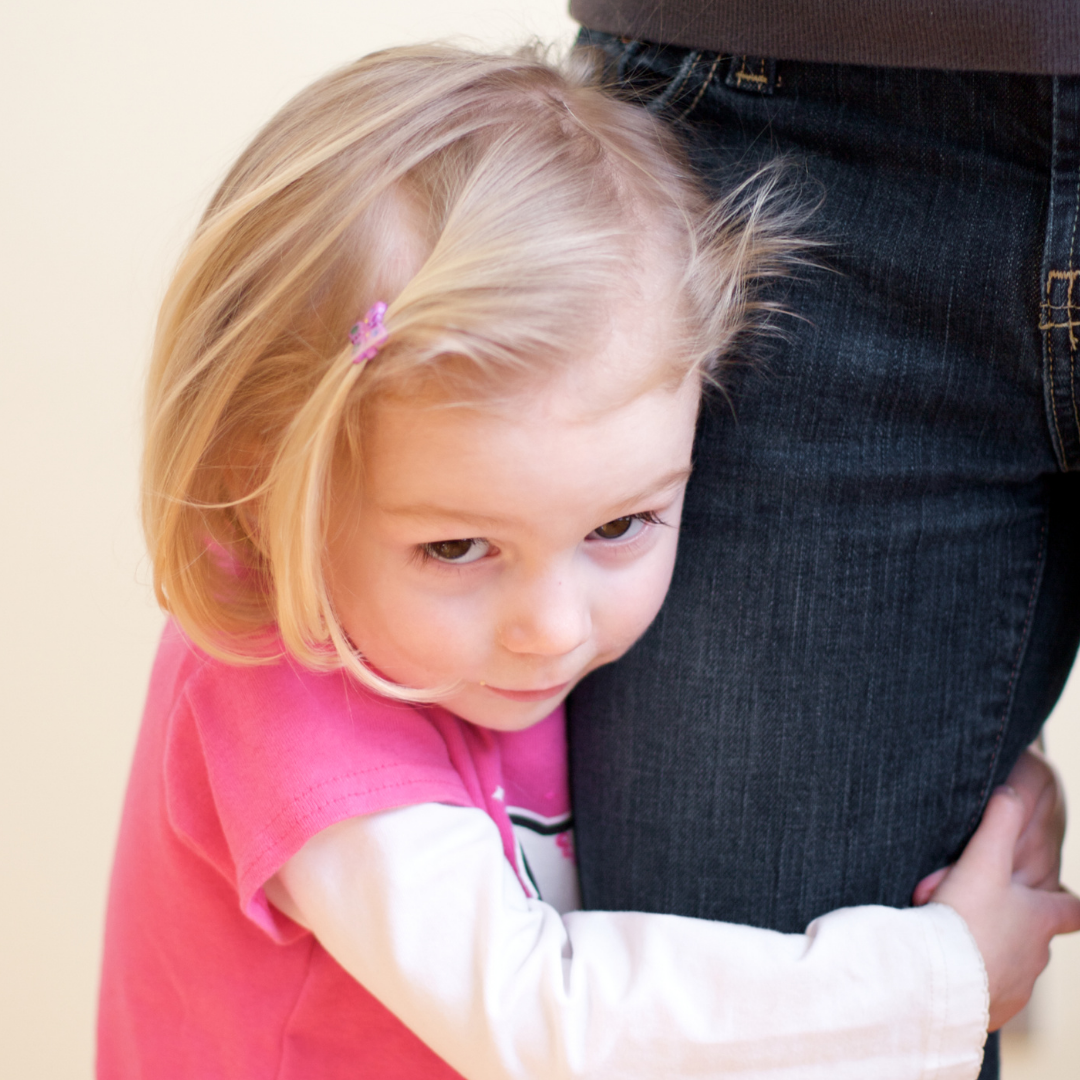Overview of Developmental Stages: How Mini Maestros Music & Movement Classes Support Early Childhood Growth
Early childhood is a pivotal period for development, marked by rapid advancements in language, motor skills, social interactions, and emotional intelligence. From 5 months to 5 years, children achieve significant milestones that lay the groundwork for future learning and personal growth. Research underscores the profound impact of music and movement in nurturing this development.
Mini Maestros Music & Movement classes offer a distinctive, evidence-based approach that effectively supports and enhances children’s development. This article delves into key developmental milestones and illustrates how Mini Maestros uniquely fosters these skills.

Key Developmental Milestones from 5 Months to 5 Years
Understanding the progression of language, listening, motor skills, social interactions, and emotional intelligence during early childhood is essential for selecting enrichment activities that align with children’s developmental needs.

1. Language & Communication Development
Language acquisition is fundamental to self-expression, literacy, and overall learning. Early musical engagement has been linked to enhanced language skills.
Key Milestones by Age:
- 5-12 Months: Babbling, responding to familiar voices, and imitating sounds.
- 1-2 Years: Recognising and using simple words, pointing to objects when named.
- 2-3 Years: Construction of short sentences, questioning, and comprehension of stories.
- 3-4 Years: Use of complex sentences, storytelling, and verbal expression of emotions.
- 4-5 Years: Mastery of grammar, adherence to multi-step instructions, and participation in conversations.
How Mini Maestros Supports Language Development:
- Singing and Saying Rhymes: Builds vocabulary, fast-tracks language fluency, and enhances phonemic awareness.
- Call-and-Response Activities: Strengthens listening skills, auditory processing and comprehension.
- Storytelling through Music: Encourages narrative skills and imagination.
Scientific Backing:
A study published in Frontiers in Psychology found that musical training fosters children’s perceptual skills, enabling them to process auditory material with higher precision, which is crucial for language development.


2. Motor Skills & Physical Coordination
Development of gross and fine motor skills is vital for physical confidence, writing abilities, and daily activities.
Key Milestones by Age:
- 5-12 Months: Rolling over, sitting without support, grasping objects.
- 1-2 Years: Walking independently, stacking blocks, using a spoon.
- 2-3 Years: Running, jumping, scribbling, and basic ball skills.
- 3-4 Years: Balancing on one foot, controlled catching and throwing, and using scissors.
- 4-5 Years: Enhanced coordination, hopping, skipping, and early writing skills.
How Mini Maestros Enhances Motor Development:
- Instrument Play: Strengthens fine motor skills and hand-eye coordination.
- Dance & Movement Games: Promote balance, sense of steady beat, and proprioception.
- Action Songs & Finger Plays: Develop dexterity, timing, and muscle control.
Scientific Backing:
Research published in Children demonstrated that music and movement interventions significantly improved motor functions such as balance and bilateral coordination in children with Autism Spectrum Disorder.


3. Social Skills & Emotional Intelligence
The development of social awareness, confidence, and emotional regulation is crucial for school readiness and overall well-being.
Key Milestones by Age:
- 5-12 Months: Responding to facial expressions, laughing, and recognising familiar people.
- 1-2 Years: Engaging in parallel play, imitating social behaviours, and displaying simple emotions.
- 2-3 Years: Emergence of cooperative play, basic sharing, and expression of preferences.
- 3-4 Years: Participation in group activities, understanding of emotions, and role-playing.
- 4-5 Years: Negotiation with peers, adherence to group instructions, and formation of friendships.
How Mini Maestros Strengthens Social Development:
- Group Participation: Encourages teamwork, turn-taking, and cooperation.
- Emotional Expression Through Music: Assists children in recognising and regulating emotions.
- Interactive Songs & Role-Playing: Fosters empathy, listening, and peer engagement.
Scientific Backing:
A study published in Frontiers in Psychology found that group music training enhances children’s cooperative and prosocial behaviours, such as voluntary actions that benefit others.

Why Mini Maestros Is the Best Choice for Your Child’s Development
While various enrichment programs offer benefits, Mini Maestros Music & Movement classes stand out as a comprehensive and scientifically supported option.
- Multi-Sensory Learning Approach
Mini Maestros integrates singing, dancing, instrument play, and storytelling—engaging multiple senses to maximise learning and retention. - School Readiness & Cognitive Growth
Studies indicate that children exposed to structured music programs exhibit enhanced cognitive skills, including improved memory and attention, which are crucial for academic success. - Experienced, Passionate Instructors
Trained educators lead each session, ensuring an engaging and developmentally appropriate experience. - Safe, Supportive Environment
A nurturing atmosphere fosters confidence and encourages children to explore, create, and connect. - Flexibility for Busy Parents
With classes designed for various age groups and schedules accommodating families, Mini Maestros facilitates access to high-quality early education.
Final Thoughts
From language and motor skills to social-emotional development, Mini Maestros Music & Movement classes offer unparalleled benefits for young children. Grounded in scientific research and designed for enjoyment, these classes provide a nurturing environment where children thrive—developing essential skills for school and beyond.
For parents who prioritise quality education and engaging, research-backed activities, Mini Maestros represents an excellent choice to ensure their children achieve key developmental milestones while having fun.

FAQs
- At what age should my child start Mini Maestros classes?
Mini Maestros offers programs for babies as young as five months old, ensuring early exposure to the benefits of music and movement. In addition, Mini Maestros has a series of 4 lessons on demand available for parents with new babies called “Nurturing Your Baby Through Music”. - How does music support school readiness?
Music enhances language development, cognitive skills, and emotional intelligence—all crucial for academic success. - Can both of my children attend the same class?
Yes! We offer flexibility for parents wanting to enrol siblings in the same class. - What if my child is shy or hesitant?
Our supportive teachers and predictable class structure helps shy children gradually build confidence. - How do Mini Maestros classes compare to other toddler activities?
Unlike sports or traditional playgroups, Mini Maestros uniquely combines cognitive, social, and motor skill development in one engaging, research-backed program. Our sequential program supports children through all their developmental stages.



